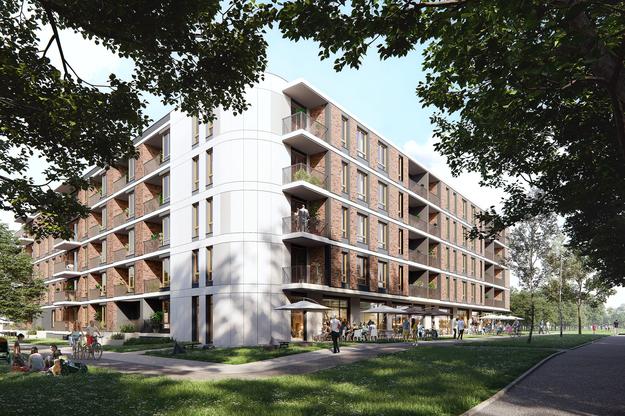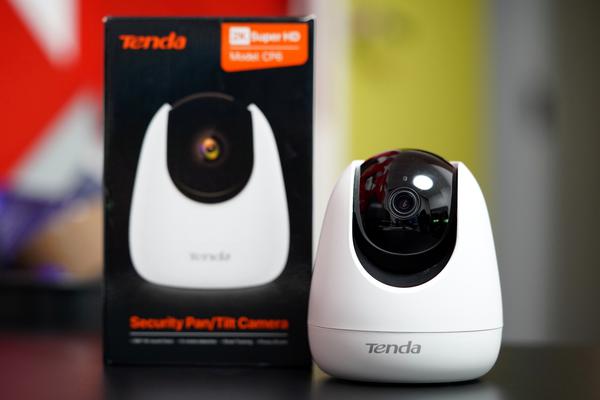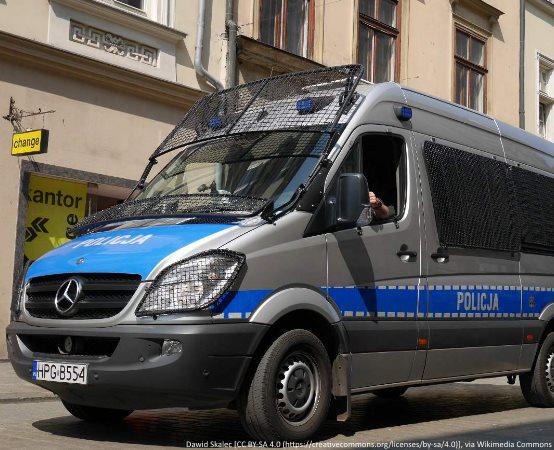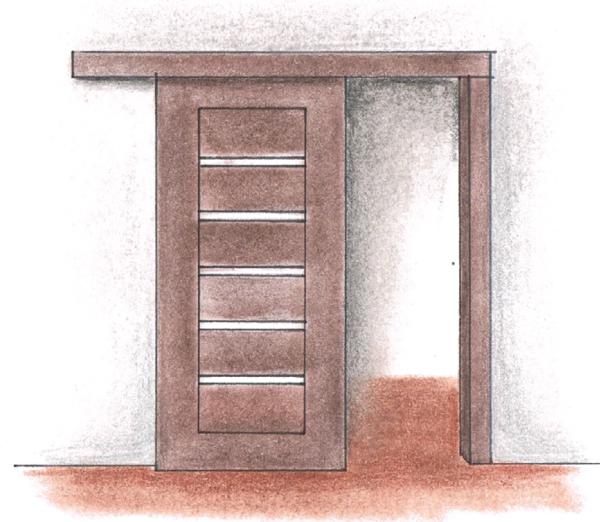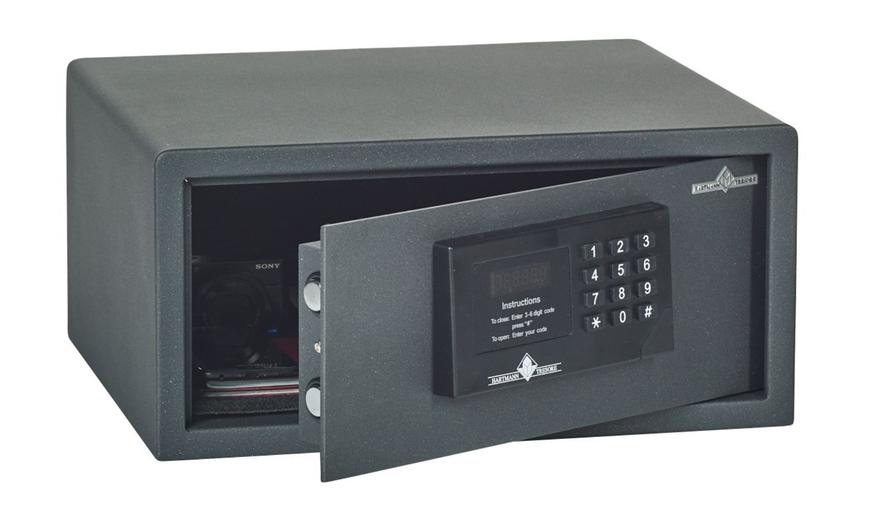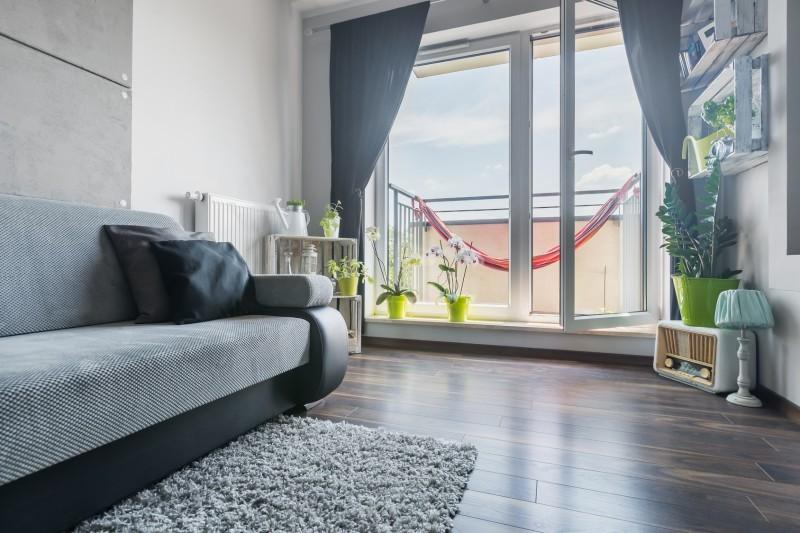Execution of alarm installation and building automation
Traditional installations have a separate, very specific area of operation - heating is to provide heat, air-conditioning and cooling, ventilation air exchange, etc. And what does the system known as intelligent installation actually do? He acts as a kind of supervisor and coordinator for other installations and individual devices. It checks their status and not only turns them on or off, but also makes sure that they work together optimally.
Because if, for example, we plan to cool the rooms, it will be very advisable to lower the external roller shutters in advance and / or unfold the awning to limit their heating by intense sun. You should definitely also close the windows, because what's the point of cooling the air in the prevailing draft? With appropriately advanced automation, these activities will be performed by the installation called intelligent, not the home user. All quickly, accurately and without human effort.
The intelligent system can control virtually all devices in the house. (photo: Somfy)Still alarming or already intelligent?
The alarm system definitely stands out from other home systems. Especially, if it is not the simplest variant, consisting of just a few motion detectors, a basic control unit and an alarm siren. In more extensive versions, the alarm system covers not only the entire building, but also the property. It can be equipped with various detectors detecting movement (inside and outside), sensors for opening windows and doors, cameras, gas, carbon monoxide, flooding, etc. activation of the siren. In response, such an arrangement can take very specific actions.
If it detects a gas leak, apart from alerting the owner, it can close the main gas valve itself, if it is equipped with an appropriate actuator. It can also open windows (if they also have actuators), or increase the intensity of mechanical ventilation. And it does not matter that the actuators were installed mainly so that the windows could be automatically closed when the alarm was triggered. The same detectors and devices can be used in many ways and for different purposes. As long as appropriate sequences of actions can be programmed in the control panel. Are we already entering the area of operation of intelligent installations in this way? Absolutely! The thing is that the line between intelligent and alarm systems is becoming increasingly blurred. Alarms are not only becoming more complex, but also the capabilities of their control panels, which are able to process large amounts of data and perform complex operations.
The extensive alarm system can also function as an intelligent installation. (photo: Satel)At the same time, in the last few years, the offer of systems referred to as intelligent has grown exponentially. In their case, this does not necessarily increase the complexity and number of functions. Even special, simplified and truncated functional versions of intelligent installations known for years are being developed. Of course, there are systems with huge possibilities, and they are further developed. However, there is also a strong opposite tendency - many companies have developed systems that are quite simple, with only basic functions (for intelligent installations). Often these are companies that have been operating in the security industry so far. For them, it is not so much entering a new field, but expanding their current activity. After all, it is not a problem to implement new functions so that, for example, motion detectors serve not only for the purposes of the alarm, but also the lighting installation.
On a few examples we will show how the cooperation between an intelligent system and an alarm system can look like. Which of their elements can be shared, and what benefits does it bring in each of them.
Entrance to the house
On the example of solutions related to home access control, the interpenetration of alarm systems, i.e. security systems, and intelligent systems, providing residents with comfort and good cooperation of all home devices, can be clearly seen.
Because who is able to decide whether the replacement of a traditional key lock, e.g. with a version equipped with a fingerprint reader, is better for the safety or comfort of the household members? There are many arguments for both, but they will continue to intertwine.
Anyway, it is worth taking a look at what new technologies offer instead of a traditional lock and key.
The lock can be controlled electronically and the door can be opened:
Fingerprint readers, a keyboard, a Bluetooth receiver can be used to operate the electronic lock. (photo: Siegenia)In the first case, i.e. when it is enough to put a finger to the reader to open the door, we always have the equivalent of the key with us. For many people, this will certainly be the most convenient option. The fact that you do not have to carry anything with you, but even remember the code, is especially useful for children - they could lose the key, and forget the code, or reveal it to someone. Although the use of a code or the automatic opening of the door after we approach them with our smartphone are also extremely comfortable options. Note that in the latter case, with proximity opening, we may even have our hands full. It is worth adding that in some systems the doors can also be opened remotely. If only to let in friends with whom we made an appointment, if we do not manage to get home on time.
But it's not just about convenience. In such an electronic system, we can save access rights for a large number of users (e.g. 200 people). At the same time, we usually do it ourselves from the application level. What is very important, we can also grant access rights temporarily or delete them. Such temporary access can be granted, for example, to a renovation team. Of course, there is no problem with losing the keys and having to replace the locks. It is true that someone in the household may lose their smartphone, but then it is enough to remove this phone from the list of authorized devices. The time of each entry and exit can be recorded along with the information about who it was.
It is also worth paying attention to the seemingly minor, but important in everyday use advantage of such an electronic lock. Increasingly, doors are equipped with a handrail, instead of a traditional handle. The problem may be locking them when we go out for a moment in front of the house, and we do not have the key with us and there is no one inside to open them for us. However, in the case of a lock with a fingerprint reader or a code keypad, this is not the slightest problem.
In addition, it should be added that in doors with ordinary locks, locking the door means that it is closed with only one simple latch. In the electronic variant, it can be a full bolting immediately, because the lock is activated. So, whenever we leave the house, we can be sure that it is securely closed. Such a lock also transmits information to home electronic systems whether the door is currently closed or something is blocking it.
Intercom and cameras
On the example of intercoms and video intercoms, it is also clearly visible how long the evolutionary path of access control devices has been. Simple, analog intercoms without a camera have long been replaced by doorbells. Over time, video intercoms have become popular, because it is undoubtedly more convenient and safer not only to hear, but also to see a person who wants to enter the plot. Then it is time for devices with more and more possibilities - with color cameras, the function of remembering a photo of the calling person, even if no one is at home and there is no one to answer the call. Digital intercoms, once used only in large buildings (due to the possibility of servicing many premises), have also become popular. In single-family houses, their other function came in handy, namely the ability to open the gate with a code entered on the keyboard, instead of using a key.
But the possibilities now extend much further. The intercom call can be picked up on a smartphone and not only within the range of the home Wi-Fi network, but via the Internet, even while being far from home. This way we will check who wants to enter, we will talk, we will finally let in or refuse. We can, for example, let the courier enter the plot and ask him to leave the package in a sheltered place on the porch. And these are all functions not yet available even in advanced automation systems.
If we plan to install external cameras, remember that a properly set camera can be even better than the one built into the video intercom. And there is nothing to prevent the system from displaying the view from it when we answer the intercom. Such a camera can be of better quality than an intercom, be better positioned, etc. The image from it can, of course, be captured by a video recorder.
When an intruder appears
Many elements can be responsible for detecting an intruder entering the property - external motion detectors, infrared barriers (curtains), placed on potential routes and next to the building, and finally shock detectors or other detectors already registering an attempt to cross the fence. But that's all, these are components of the alarm system. Where is the place for automation known from intelligent systems? This can be used in response to the intruder. Because if you can program the so-called light scene - turning on some of the lights and performing a whole series of activities (e.g. lowering the blinds), for the purposes of, for example, a film projection in the living room, why not prepare an appropriate scenario for the appearance of an intruder?
Detecting it may, for example, turn on some of the lights inside the house (in the attic bedroom, by the stairs, etc.), suggesting a disturbance in the house. And the lights closest to the spot of detection may start flashing, giving a confusing strobe effect, the siren will start to howl, etc. It goes without saying that the nearby cameras will be turned on. Not to mention the fact that a criminal walking across the lawn may be hit by a shower from suddenly on sprinklers.
It is also worth securing the surroundings of the house. This is often enough to deter potential burglars. (photo: Optex Security)Such unexpected events discourage and confuse the burglar. They take away his confidence and slow him down, thus also allowing more time for security agencies to intervene. And yet this is exactly the effect it is all about. Because no security measures can guarantee that the criminal will not be able to get inside. They cannot physically stop him and incapacitate him - the use of traps that threaten health and life is prohibited by law. We will only see collapses, self-firing, etc. in films, we cannot legally apply them and we would run the risk of very serious trouble.
However, nothing prevents you from discouraging the intruder with slightly more subtle methods. In most cases, this is enough. Even the research conducted among convicts shows that most of them give up when encountering difficulties. They just look for easier prey then. Because criminals also - more or less consciously - estimate the risks involved and the potential benefits. Therefore, the mere awareness that they have been detected and registered by the security system deprives most of them of the desire to continue their actions.
Do you appreciate our advice? You can get the latest every Thursday!Of course, we must be aware that this is not always enough. Some will be really very determined, or simply well prepared to rob a specific object. There are also those who specialize in instant break-ins. Without messing with any subtleties, they just completely ignore the alarm and the noise made. But they brutally but quickly break down a window, and in a truly sprinting pace, in just a few minutes, they superficially loot the house. Their point is to get away before security arrives or anyone else intervenes. Such criminals can only be stopped by solid mechanical security, e.g. the above-mentioned window will turn out to be so solid that they will not be able to deal with it in the assumed time. Then they quit too.
Electronic and mechanical security
Therefore, for the reasons outlined above, a good security system should include both electronic and mechanical components. The former are designed to detect the intruder and possibly forward the message about this event. The latter, by putting up a physical resistance, will not let it go any further, or at least slow down the villain. Then the probability that he will either quit or be captured increases.
It is important to realize that just as electronic security alone will not stop certain types of burglars, the robustness of doors or windows alone will not stop some criminals.
Not only burglary
The source of trouble and damage can be many other events, apart from the intrusion of an intruder into your property or building. After all, nothing prevents you from activating an external alarm siren not only in the event of a break-in. This can be done when, for example, a fire is detected. Provided, of course, that the alarm system and the intelligent system work together. Or, if such functions are provided for in the operation of the alarm system.
If we decide to install an appropriate set of sensors, an excessively high level of carbon monoxide (carbon monoxide), a natural or liquid gas leak or flooding may also be detected. It is very important how our home systems react to these events. The very fact of triggering the alarm is a kind of minimum version. If there are suitable valves with actuators in the house, they can be automatically closed, mechanical ventilation will start to work more intensively, windows will be opened. The alarm or intelligent system can also send appropriate warning messages to the phone of the homeowner or other selected people. It all depends on what devices we have and how ingenious the home automation designer was.
Security means more than just burglary protection. It is also worth installing carbon monoxide, gas leakage and flood detectors. (photo: Satel)It is worth noting that here again we come to the blurred line between the intelligent system and the alarm.
But the detectors and other elements of the alarm system can also be used on a daily basis. Motion detectors, installed with the alarm system in mind, will be perfect for intelligent installations. They can be used to control lighting, but also as sensors for the presence of people in the room. And if someone is in any interior, you can adjust the operation of ventilation, heating and air conditioning. Not to mention the automation of such activities as lowering or raising indoor blinds. You can also successfully use reed switch window detectors for new tasks. Thanks to them, the system will check, for example, whether it makes sense to run air conditioning or heating in a given interior.
Good design and high quality
The scope of the possibilities of intelligent and alarm installation depends on the one hand on the hardware (devices) itself, and on the other hand on the inventiveness of its designer and software functionality.
The variety of devices is huge, even if they are similar at first glance. For example, motion detectors designed for outdoor installation differ significantly from indoor ones, because they work in much more difficult conditions - in a completely different temperature range, with its rapid changes, etc.
The detectors can be equipped with the function of ignoring small animals. Without it, they could be a source of constant false alarms outside, because even if we do not have any pets, then - especially at night - nearby cats, foxes, etc. may be wandering around our garden. external - infrared curtains, shock sensors on the fence, etc. If they do not work well in this respect, in practice they will prove to be not only ineffective, but also burdensome. Over time, we'll either turn them off completely or ignore the alarms.
Especially outdoor motion detectors should ignore small animals. (photo: Optex Security)Here we come to the issue of the quality of the equipment itself. It is worth following not only the catalog specification, but also the manufacturer's reputation and experience. In practice, it is much better if we buy simpler devices with basic functions, but failure-free and reliable in operation, than theoretically great and advanced ones, which, however, still fail. There are currently plenty of offers on the market from unknown companies that only import it from China or other Far East countries, but do not have any service facilities or experience in this field themselves. This does not mean that such equipment will always be bad. Sometimes it may even be quite good, but such a purchase is a lottery. In addition, if we want to expand our installation in some time, or something breaks down in it, it may turn out that there is no chance for it. The company is already importing other devices, or has ceased to exist at all.
The software itself is also very important, it ultimately determines what the system can do, how the hardware will be used. In some simple systems, due to software limitations, we will not do much, because some functions are simply not provided for, and the software cannot be modified. In others, the software is created to a large extent individually, tailored strictly to a specific home.
Therefore, before we decide on an offer, let's ask in detail what functions we will actually get. For example, under the slogan "control of heating devices", there can only be the simplest on / off scheme. Which is more than enough for an electric heater, but not a boiler. The boiler should be controlled in a much more advanced way, with the possibility of changing the power. The same applies to air conditioning or an air handling unit. So let's check in detail what the possibilities of the systems offered really are.
Editor: Jarosław Antkiewicz opening: Siegenia

